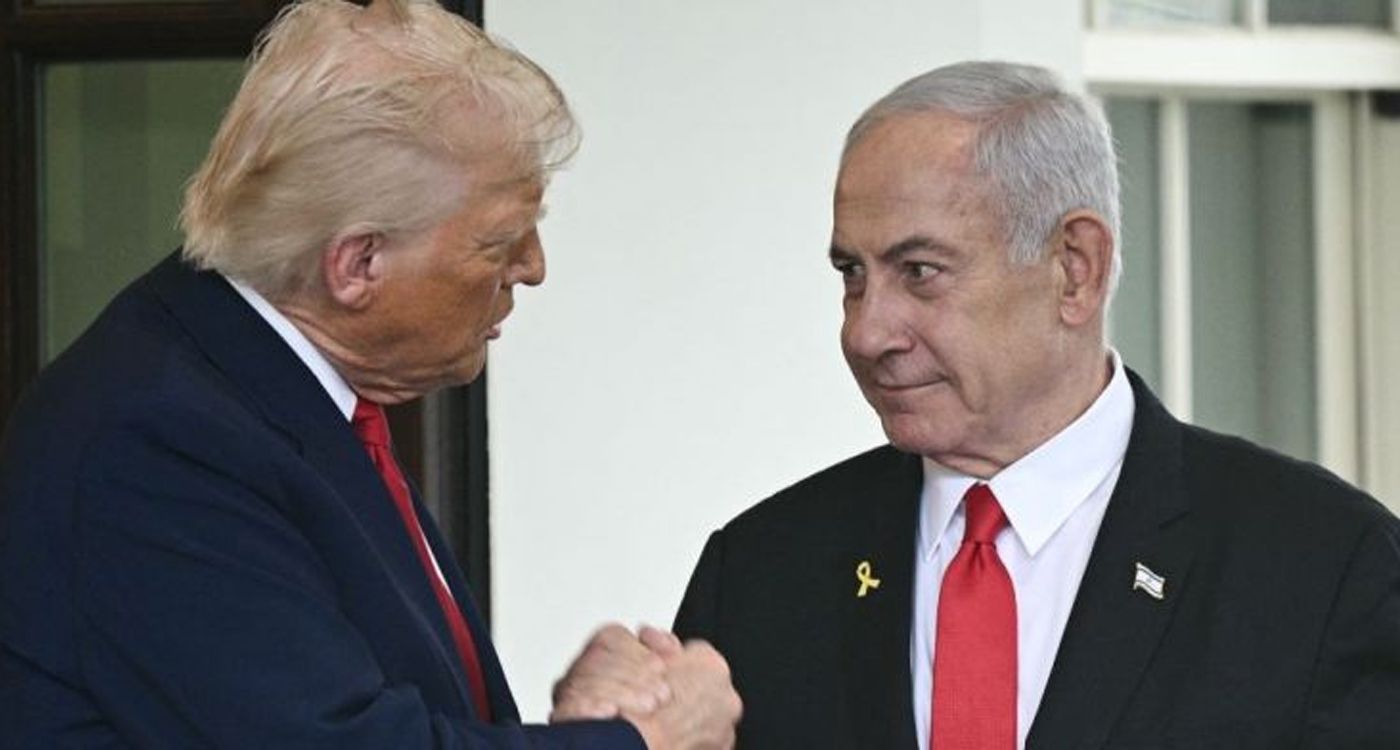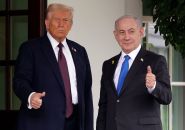- Home
- Middle East
- When Trump Applies the Zelensky Treatment to Netanyahu

©Brendan Smialowsky/AFP
Israeli Prime Minister Benjamin Netanyahu’s recent visit to Washington, initially expected to be a diplomatic summit reinforcing US-Israel ties, ultimately became a series of disappointments. According to several observers, including Israeli publication Haaretz, Netanyahu sought unwavering support from President Donald Trump for a hardline approach toward Iran and tariff exemptions for Israel, but the reality was starkly different. Trump now prioritizes negotiations with Tehran and remains firm on economic matters.
A ‘Half-Zelensky’ Reception
As Haaretz observes, while Netanyahu did not face the public humiliation that Ukrainian President Volodymyr Zelensky endured during his White House visit, the underlying message was the same: in the Trump administration, the president dictates the terms, leaving his guests in secondary roles.
In their previous encounter in February, Trump had extended goodwill gestures to Netanyahu, even proposing an ambitious plan to transform Gaza into a “real estate Riviera.” This time, however, the enthusiasm had faded. Preoccupied with his trade war and international negotiations, the US president offered no meaningful concessions to his Israeli ally.
Failure on Tariffs and the Shift on Iran
Netanyahu had hoped to secure an exemption – or at least a reduction – from the new 17% US tariffs on Israeli exports, imposed just a week earlier. His efforts were in vain. Worse, Trump bluntly reminded him of the $3.8 billion in annual military aid the US provides Israel: “Don’t forget, we help Israel a lot,” remarked Trump in the Oval Office, as Netanyahu silently absorbed the implicit rebuke. “We give Israel $4 billion a year – that’s a lot.”
The most crushing blow, however, came on the Iranian front. While Prime Minister Netanyahu had spent months pushing for heightened military pressure to force Tehran into compliance, Trump instead announced the opening of nuclear negotiations with Tehran, leaving a surprised Netanyahu to silently acquiesce. It was a strategic humiliation for the Israeli leader, who had long championed the US withdrawal from the 2018 Iran nuclear deal.
Haaretz likens this shift to Trump’s “North Korean policy:” after initially threatening military action, the president ultimately exchanged friendly gestures with Kim Jong-Un, effectively sidelining the nuclear issue. A similar scenario may play out with Iran, much to Netanyahu’s dismay.
Other Fish to Fry
The outcome of this visit suggests that Netanyahu is no longer a top priority for Trump. Washington’s real focus now lies in securing a major deal with Saudi Arabia, potentially normalizing relations between Israel and Riyadh. Trump is also looking to end the Gaza conflict, where he highlighted the “distress of hostages,” and strengthen ties with Turkey, despite ongoing tensions with Israel.
Back in Israel, Netanyahu faces an internal political crisis. Attacks on the judiciary and the controversial attempt to dismiss Shin Bet chief Ronen Bar (accused of investigating Netanyahu’s inner circle) reveal a diversionary strategy aimed at shifting attention from his diplomatic and security failures.
An Ally Losing Influence?
This visit highlights the widening rift between Israeli expectations and US policy. Trump is focusing on major economic deals and high-profile negotiations, pushing Netanyahu to the periphery.
For the Israeli prime minister, this marks a major strategic setback. Not only did he fail to secure the concessions he hoped for, but he was also forced to watch, powerless, as a policy on Iran was unveiled that directly undermined his interests.
The key question now is whether Trump will revert to a harder line or whether Netanyahu will be forced to accept a diminished role on the global stage.
Read more




Comments